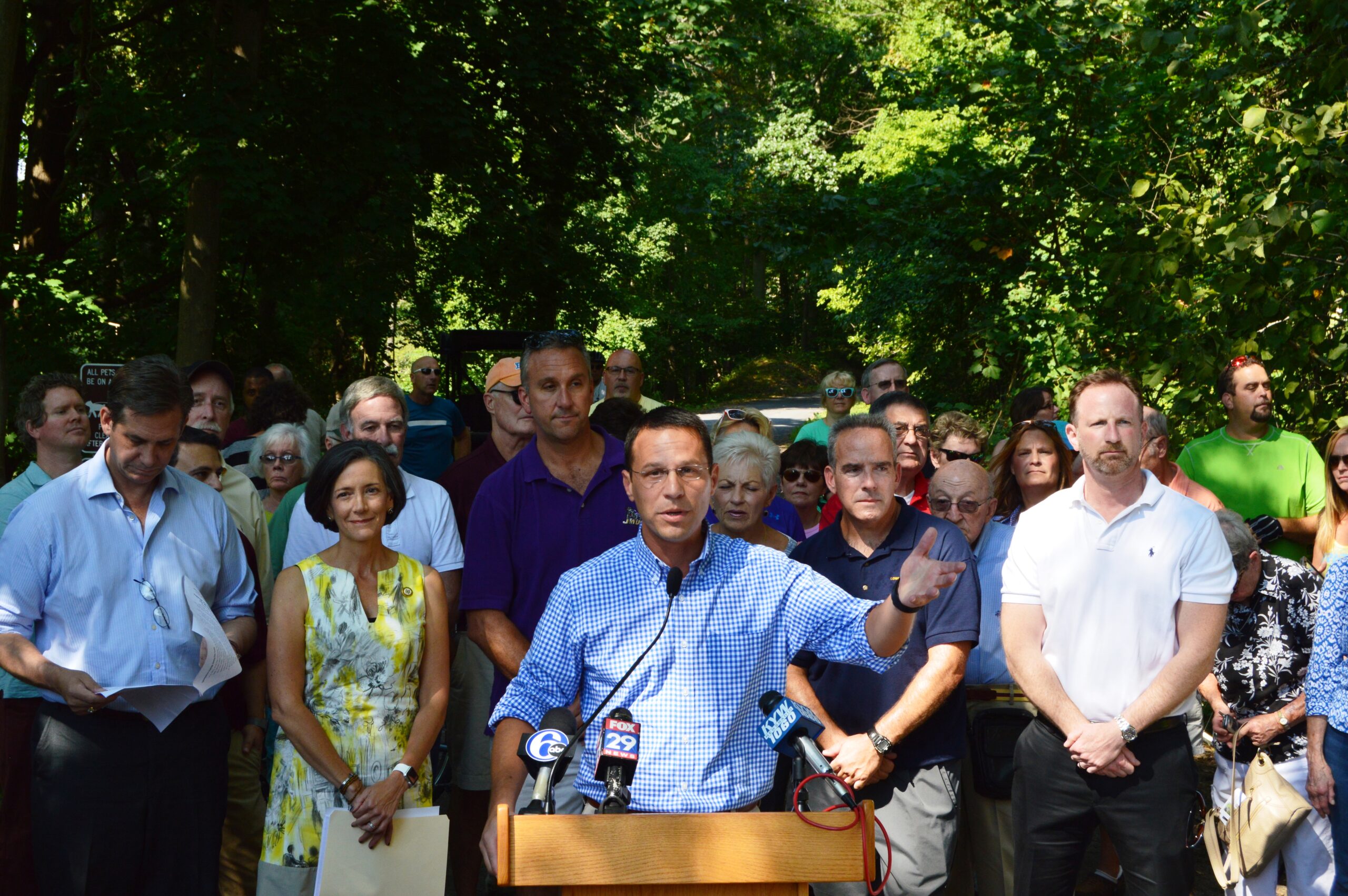Image: News_Shapiro_1: “Pennypack Shapiro (21511987092)” by Montgomery County Planning Commission is licensed under CC BY-SA 2.0.
In his budget address on Feb. 6, 2024, Governor Josh Shapiro criticized Pennsylvania’s current minimum wage by calling it a shanda (a Yiddish word for something that is shameful). “It’s time we raise our minimum wage to 15 dollars an hour,” he said, “because we’re falling behind.” Since 2009, Pennsylvania’s minimum wage has remained at $7.25 per hour in accordance with the Federal Fair Minimum Wage Act of 2007.
Several major cities, as well as 30 states, including all six states which border Pennsylvania, have recently increased their minimum wage beyond the federal rate. Philadelphia does not have the authority to raise its minimum wage, according to Pennsylvania wage law.
“We’ve seen proof that Pennsylvania workers living in border counties would rather drive into another state for work so they can earn a higher wage than take a job at home in Pennsylvania,” said Shapiro in his address, arguing that Pennsylvania’s current minimum wage puts the Keystone state at an economic disadvantage to nearby states.
In 2023, the Pennsylvania House of Representatives voted 103-100 in favor of passing a bill known as HB1500, which would increase Pennsylvania’s minimum wage annually: $11.00 per hour effective January 1, 2024; $13.00 per hour effective January 1; 2025; and $15.00 per hour effective January 1, 2026. However, according to The Keystone, the bill has not yet passed in the Senate due to Republican inaction. Despite that, in his budget address, Governor Shapiro spoke optimistically about the prospect of the bill passing the Pennsylvania Senate, saying, “I’m encouraged to see the comments of leaders in the Senate who’ve shown a willingness to engage on this issue.”
A poll conducted by Data for Progress in 2023 found that 73% of voters in Pennsylvania support incrementally increasing the minimum wage over 4 years.
How much of an impact would the minimum wage increase have?
In March 2024, the Minimum Wage Advisory Board released a document titled “Analysis of the Pennsylvania Minimum Wage.” The report found that “workers earning minimum wage or less represented 2.1 percent of all hourly workers and 1.1 percent of all workers.” The report also mentioned that three out of every four workers in Pennsylvania (as well as the entire U.S.) earned $15.00 or more per hour. Another finding was that the median wage in Pennsylvania sat at $19.85 per hour in 2023. A minimum wage increase to $15.00, which Governor Shapiro is pushing for, would raise wages for one out of every four Pennsylvania workers. Note: the study analyzed all workers in Pennsylvania above the age of 16.
What do experts and politicians think?
There is a split among experts regarding minimum wage laws.
Paul Krugman, winner of the 2008 Nobel Prize in economics, wrote in a New York Times Op-ed, “There’s just no evidence that raising the minimum wage costs jobs, at least when the starting point is as low as it is in modern America.” In the same Op-Ed, he argues that a higher minimum wage won’t increase inflation because the labor market does not function in the same way as the goods and services market.
Milton Friedman, winner of the 1976 Nobel Prize in economics, subscribes to a more libertarian economic view and does not support increasing the minimum wage. On his website, he wrote that “minimum wages reduce employment opportunities for less-skilled workers and lead to reductions in their earnings.” According to Friedman, businesses pass the burdens of minimum wage hikes on to consumers and workers.
York County Republican Rep. Katie Yunk said, “I cannot support a bill that would put a local family restaurant out of business.”
Sameh Sharoud is a third-year Psychology major with a minor in Biology. SS1015422@wcupa.edu

